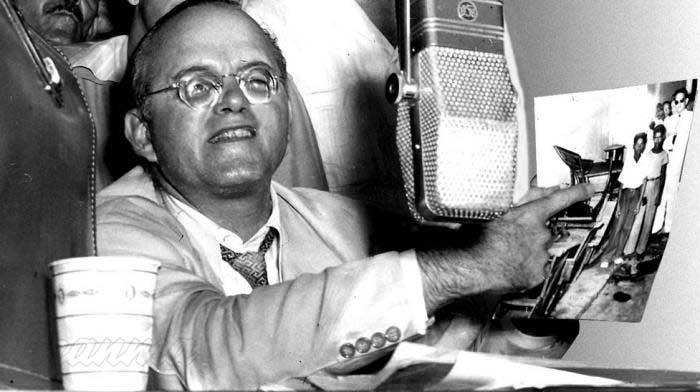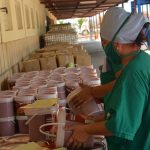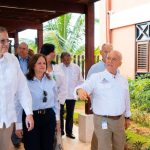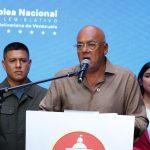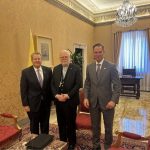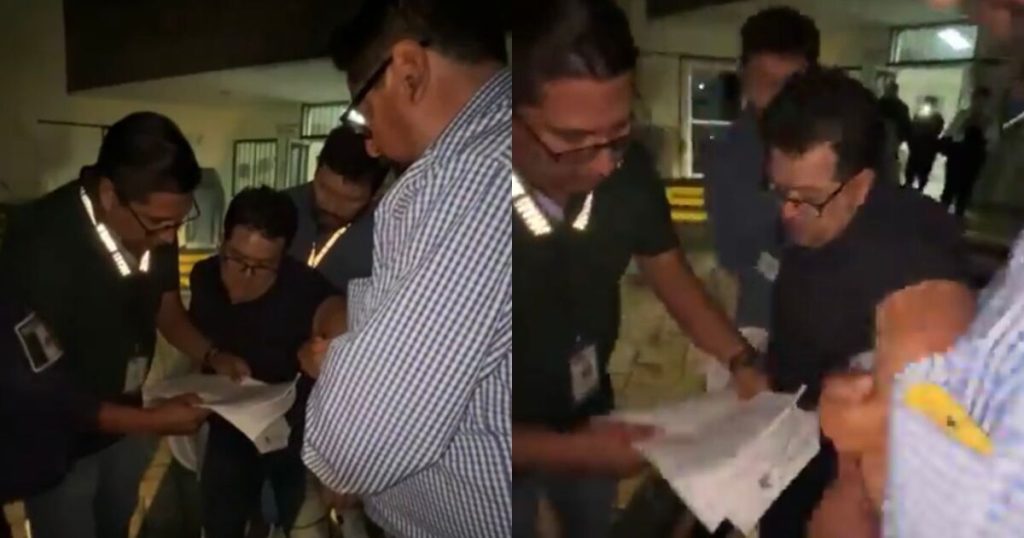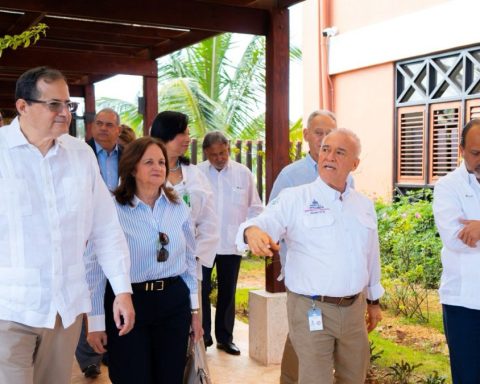HAVANA, Cuba.- On August 16, 1951, after struggling for eleven days between life and death, died At 43 years old, the leader of the Cuban People’s Party (Orthodox), Eduardo Chibás, died as a result of the gunshot wound to the abdomen he had given himself on August 5, during his widely listened to Sunday radio program Into the air.
Chibás remains one of the most controversial figures in our republican history 73 years after that event that caused a national shock.
Because Fidel Castro And some of his first followers began their political adventures as members of the Orthodox Party, Castro’s historiography has mythologized Chibás, presenting him almost as a communist.
Nothing could be further from the truth. Chibás was a leftist —as were Grau, Prío and even Cambric in his early days—but he was anti-communist. Chibás’s relations were far from cordial with the members of the Popular Socialist Party (PSP), whom he did not forgive for what he considered their betrayal of the ideals of the 1930 revolution, first by agreeing with Machado to withdraw his support for the general strike of August 1933, and then by his alliance with Batista in 1938.
As for Fidel Castro, he was not on the rise in the orthodox ranks, as Castro historians claim. The young lawyer from Holguín’s stridency and past connections to gangs displeased the orthodox leader, who had much more prominent followers such as Jorge Mañach, Fernando Ortiz and Jose Pardo Llada.
It is believed that if Chibás had not died, the course of Cuban history would have been very different.
Chibás was the candidate most likely to win the presidential election. After his death, the candidate most likely to win was his replacement at the head of the Orthodox PartyRoberto Agramonte. But the elections, scheduled for April 1952, did not take place because a month earlier, on March 10, Batista, whose candidacy had no chance of winning, staged a coup d’état and overthrew President Prío.
Had Chibás, a nationalist politician as close to social democracy and corporatism as Grau, become president, he would probably have become just another populist and demagogic leader of the kind that abounds in Latin America.
Perhaps, by trying to free Cuba from economic dependence on the United States, he would have had some minor clashes with Washington. And he would have had difficulty in eradicating corruption and gang activity, because he was as committed as Grau and Prío to his former comrades in the warring revolutionary factions.
But whatever the outcome of a Chibás or Roberto Agramonte government, it would never have been able to reverse the course of constitutionality and democracy and would have avoided everything that came after 1952: the Batista dictatorship, the Fidelista insurgency and the establishment of a totalitarian regime that has lasted 65 years.
However, Eduardo Chibás, with his sickly messianism and the irresponsible and incendiary way in which he launched accusations left and right against the governments of Gray and Prío did a lot of damage to democratic institutions.
Chibás, when he was a university student, had been opposed to the Machado dictatorship. A faithful follower of Dr. Ramón Grau San Martín, he was one of the first to join his Authentic Cuban Revolutionary Party in 1934. But in 1947, disillusioned by the corruption and gang warfare that characterized Grau’s second government (1944-1948), he created the Orthodox Party, an offshoot of authenticism, which with the slogan “shame against money” and a broom as its symbol, promised to end administrative corruption and clean up Cuban politics.
In the 1948 elections, Chibás was defeated by the ruling party candidate, Carlos Prio Socarraswho was his friend and comrade in arms since the time of the fight against Machado.
The tenacious and charismatic Chibás, who was an accomplished orator and polemicist, did not give up, and as the problems of Grau’s government worsened under Prío, he redoubled his attacks against his administration.
The issue that continues to cause the most controversy regarding Chibás is his dispute with the Minister of Education Aureliano Sánchez Arango.
Chibás claimed that Sánchez Arango had bought land in Guatemala with the money intended for school breakfasts, but he was never able to prove it: he never showed the evidence that he claimed to have and that Sánchez Arango urged him to present.
The dispute between Chibás and Sánchez Arango, with mutual recriminations, lasted three months, from June to August 1951. As Chibás did not produce the supporting documents against the minister that he said he kept in a suitcase, he was the object of skepticism and jokes, such as those of the very popular comic actors Garrido and Piñeiro about Chibás’s “big suitcase.”
Probably those taunts about the evidence he failed to show influenced Chibás, who was such an impulsive and vehement man that he made many doubt his mental health, to adopt an extreme attitude.
On the night of August 5, 1951, on his CMQ radio program Into the airtrembling with impotence, in a fit of hysteria, sweating profusely and with his eyes bulging behind his thick myopic glasses, he took out a revolver and shot himself in the abdomen.
Seven decades later, the circumstances surrounding that dramatic event remain unclear.
Some say that the evidence against Alemán was stolen from Chibás’s briefcase by individuals in Sánchez Arango’s service, but others claim that no such evidence existed.
There are those who claim that Chibás did not really want to take his own life, but to impress. The wound, near the groin, did not necessarily have to be fatal. If he died, it was due to an infection and other complications that arose.
An old rumor claims that the person responsible for the complications that caused Chibás’ death after eleven days in the Medical Surgical Center of Havana was Dr. Gustavo Aldereguía. According to these versions, his bosses in the Popular Socialist Party, still hoping to return to the government by allying themselves with Batista and who detested Chibás for his anti-communism, had ordered the doctor to prevent the orthodox leader from leaving the hospital alive and winning the elections, as everything seemed to indicate would happen.
OPINION ARTICLE
The opinions expressed in this article are the sole responsibility of the person issuing them and do not necessarily represent the opinion of CubaNet.
Follow our channel WhatsApp. Receive the information from CubaNet on your cell phone through Telegram.
